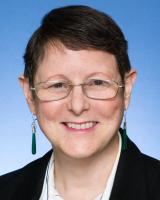
Allen N. Berger is the H. Montague Osteen, Jr., Professor in Banking and Finance in the Finance Department, Darla Moore School of Business, University of South Carolina, since 2008. He is also Ph.D. coordinator of the Finance Department, and Carolina Distinguished Professor of the University. Outside the University, he is currently Vice President of the Financial Intermediation Research Society (FIRS), and will be its 2021 Conference Coordinator, and 2022 Program Chair and President. He is also Senior Fellow at the Wharton Financial Institutions Center and Fellow of the European Banking Center, and serves on the editorial boards of eight professional finance and economics journals. Professor Berger was editor of the Journal of Money, Credit, and Banking from 1994-2001, has co-edited seven special issues of various professional journals, and has co-organized a number of professional research conferences. He also co-edited all three editions of the Oxford Handbook of Banking, 2010, 2015, and 2019. His research covers a variety of topics related to financial institutions. He is co-author of Bank Liquidity Creation and Financial Crises (2016, Elsevier), as well as TARP and other Bank Bailouts and Bail-Ins around the World: Connecting Wall Street, Main Street, and the Financial System (2020, Elsevier).
He has published over 150 professional articles, including about 120 in refereed journals. These include papers in top finance journals, Journal of Finance, Journal of Financial Economics, Review of Financial Studies, Journal of Financial and Quantitative Analysis, Review of Finance, Journal of Financial Intermediation and Journal of Corporate Finance; top economics journals, Journal of Political Economy, American Economic Review, Review of Economics and Statistics, and Journal of Monetary Economics; and other top professional business journals, Management Science, Journal of Business, and European Journal of Operational Research. His research has been cited over 80,000 times according to Google Scholar, including 29 different articles with over 1,000 citations. He has given invited keynote addresses on five continents, and has been a visiting scholar at several Federal Reserve Banks and central banks of other nations.
Professor Berger received the University of South Carolina Educational Foundation Award for Research in Professional Schools for 2018, and was named Professor of the Year for 2015-2016 by the Darla Moore School of Business Doctoral Students Association. He also has won a number of best paper awards from different journals and finance conferences. He was Secretary/Treasurer, Financial Intermediation Research Society (FIRS) from 2008-2016; and Senior Economist from 1989 to 2008 and Economist from 1982-1989 at the Board of Governors of the Federal Reserve System. He received a Ph.D. in Economics from the University of California, Berkeley in 1983, and a B.A. in Economics from Northwestern University in 1976.
https://sc.edu/study/colleges_schools/moore/directory/berger_allen.php

Gary S. Fissel is an economist who has conducted empirical and analytical research in the areas of risk measurement of financial institutions.
While at the FDIC, Dr. Fissel not only conducted economic research, but also worked on models for offsite monitoring of insured depository institutions and developed credit risk stress testing models to support oversight of the implementation of stress tests required by the Dodd Frank Act.
https://www.linkedin.com/in/garyfissel/

Jeremy Fox is the Shatto Endowed Chair of Economics at Rice University. Fox specializes in empirical industrial organization. Other fields of research include econometrics and labor economics. Before joining Rice as a professor, Fox worked at the University of Chicago and the University of Michigan.
Fox has worked on industries such as mobile phones, automobile manufacturing, and venture capital. He has also worked on firm productivity and labor market issues. Fox is known for his work on estimating models of two-sided matching games and of demand.
http://fox.web.rice.edu/

Ryan Hess is an Assistant Professor in the J.M. Tull School of Accounting at the University of Georgia. He received a Ph.D. in accounting from the University of Texas at Austin and completed his postdoctoral studies at Stanford University. Ryan worked in Deloitte’s business tax services group prior to his doctoral work. His research focuses on income and non-income tax avoidance of both corporations and flow-through entities. He presented his research on government assistance to the FASB staff and board members, which was relevant to the now-enacted accounting standard, “Disclosures by Business Entities about Government Assistance.”
https://www.terry.uga.edu/directory/ryan-hess/

Leonard (Len) Kiefer is an economist who helps people understand what’s going on in the economy, housing, mortgage markets. Len joined Freddie Mac in 2009, and has served as Deputy Chief Economist since December 2012. Len is responsible for primary and secondary mortgage market analysis and research, macroeconomic analysis and forecasting.
Prior to joining Freddie Mac, Len was an assistant professor at Texas Tech University in Lubbock, Texas where he conducted research on macroeconomics and monetary policy. He has also taught economics at The Ohio State University and finance at George Mason University.
Kiefer holds a B.A. in economics from the University of Kentucky, and a PhD from The Ohio State University. Len is a member of the American Real Estate and Urban Economics Association (AREUEA) and the National Association for Business Economics (NABE).

Kristoph Kleiner is an Associate Professor of Finance at Indiana University. Prior to starting at Indiana University, he completed his PhD at Duke University and interned with the Federal Reserve Bank of New York and the Federal Reserve Board. He is the recipient of awards for research, teaching, and service, including most recently: the 2022 Best Paper at the University of Texas AIM Conference, the 2022 Best Discussant at the Craig Holden Memorial Conference, the 2022 Kelley School of Business Doctoral Teaching Award, and the 2021 Distinguished Referee Award by the Review of Financial Studies.
Kristoph specializes in empirical corporate finance research with a particular focus on two issues: (i) identifying and developing talent in entrepreneurs, bankers, and managers, and (ii) designing debt relief policies for households and firms. His research has been published in the Journal of Finance, Journal of Financial Economics, and Review of Financial Studies. In addition to research, Kristoph has developed new class curriculums including a PhD course called Financing Innovation, Labor, and Households as well as undergraduate and graduate courses in Fintech and Machine Learning.
https://sites.google.com/site/kristophkleiner/

Xiaodong Liu specializes in econometrics and applied microeconomics, with a focus on network models. His recent research explores the interdependence between individual behavior and link formation decisions, the testing and estimation of network effects with imperfect data, and the identification of network nodes or links through which policy interventions can maximize impact. His work has been widely published in leading academic journals, including Econometric Theory, Econometrics Journal, Econometric Reviews, Journal of Applied Econometrics, Journal of Business & Economic Statistics, Journal of Econometrics, Journal of Economic Behavior & Organization, RAND Journal of Economics, Regional Science and Urban Economics, and Review of Economics and Statistics. Professor Liu received his B.A. from Fudan University in 2001, and his Ph.D. from The Ohio State University in 2007.
https://spot.colorado.edu/~xiaodong/

Tom Mayock is an Associate Professor of Real Estate in the Blackwood Department of Real Estate at Virginia Tech. Prior to joining Virginia Tech, Tom held positions at UNC Charlotte, the Office of the Comptroller of the Currency, and Montclair State University. He received a Ph.D. in economics from Florida State University in 2009 and a Bachelor of Science in economics from Penn State University in 2003. Tom’s primary research interests are urban economics, public economics, real estate and credit risk. His work has appeared in the Journal of Urban Economics, the Journal of Housing Economics, Real Estate Economics, Regional Science and Urban Economics, the Journal of Real Estate Finance and Economics, Public Finance Review, Land Economics and the Journal of Banking and Finance. Some of Tom’s current research projects investigate the impact of the single-family rental market on schools, transaction costs in the mortgage market, and the performance of credit risk models.
https://realestate.vt.edu/about/people/tmayock.html

Joseph Nichols is a Principal Economist with the Federal Reserve Board and is a respected expert on the commercial real estate market, commercial mortgage credit risk, and the financial institutions that originate and service commercial mortgages. His research has been published in the Review of Financial Studies, the Journal of Money Credit and Banking, the Journal of Urban Economics, the Journal of Real Estate Finance and Economics, the Journal of Financial Services Research, and other outlets. Dr. Nichols has contributed to several significant policy projects, including the develop of CRE credit risk models for the Dodd-Frank Act Stress Tests, design of the section of the TALF program for the CMBS and the FR Y-14 supervisory data collection. In 2021 he served on AREUEA Women in Real Estate Network (WREN) committee and has participated in Federal Reserve Board mentoring programs. He earned his PhD from the University of Maryland in 2005 and held doctoral student internships at both the Congressional Budget Office and the Office of Management and Budget. He received a Masters degree in Operations Research in 1997 and Bachelors in 1994 from The George Washington University.

Manju Puri is the J. B. Fuqua Professor of Finance at the Fuqua School of Business, Duke University. She was earlier Associate Professor of Finance at Stanford Business School, which she joined after earning her Ph.D in finance at New York University and MBA from the Indian Institute of Management, Ahmedabad.
Professor Puri is an authority in the field of empirical corporate finance and has particular expertise in financial intermediation. Her published work spans the areas of commercial banks, investment banks, venture capital, entrepreneurship, behavioral finance, and FinTech. Her research has appeared in publications such as American Economic Review, Journal of Finance, Journal of Financial Economics, and Review of Financial Studies. She has been the recipient of the Sloan Research Fellowship as well as multiple awards from the National Science Foundation. Her publication record includes over 30 refereed papers in the top finance and economic journals. Her research has won many awards including four best paper awards at the FMA Annual Meetings, two Western Finance Association best paper awards, an All-Star award from Journal of Financial Economics, and three Fama-DFA /Jenson best paper awards in the Journal of Financial Economics.
Professor Puri serves as Editor of Review of Financial Studies. She earlier served as Editor of the Journal of Financial Intermediation, as well as on the editorial boards of several journals including Journal of Finance, Journal of Money, Credit and Banking, Journal of Empirical Finance, Journal of Financial Research, and Journal of Financial Services Research.
Professor Puri has served as the President of the Financial Intermediation Research Society. She has worked with multiple regulatory authorities serving on the Financial Advisory Roundtable, Federal Reserve Bank of New York and on the Model Validation Council, Board of Governors of the Federal Reserve System. She has also served on the Bose Committee on the commission structure of financial product distributors for the Government of India, and on the Advisory Board of CAFRAL, Reserve Bank of India. She currently serves on the International Association of Deposit Insurers (IADI) Advisory Panel, Basel, and as Senior Advisor, Center for Financial Research, Federal Deposit Insurance Corporation (FDIC). She is a senior academic fellow at the Asia Bureau of Finance and Economic Research. and a Research Associate with the National Bureau of Economic Research (NBER).
Professor Puri teaches an elective she created on “Raising Capital and Financial Technologies” for the MBA students at Fuqua. She has also taught a Ph.D class on Empirical Corporate Finance and has taught Advanced Corporate Finance, and Venture Capital Financing at Fuqua and Stanford Business School. She has mentored a number of Ph.D students who have been placed at the leading schools and institutions including Board of Governors, Columbia, Cornell, McKinsey, MIT, Purdue, and Yale University.
http://www.duke.edu/~mpuri

Lynn Shibut is an economist who focuses on bank regulation. Her current research agenda is centered on bank failure, failed bank resolution, and losses on defaulted loans. She spent most of her career working at bank regulators but is now working as an independent researcher.
While at the FDIC, her work included not only economic research, but also operational work such as reporting, program analysis and review, financial analysis, operations research, simulations, and program setup and related business process development and IT development. Her research often connects academic concepts and theories to the practical realities faced by bank regulators.

Paul E. Soto is a Senior Economist with the Federal Reserve Board. His main research interests are banking, financial economics, natural language processing, and machine learning. His research has been published in Management Science, the Journal of International Economics, and the Journal of Financial Services Research. He has also taught courses on text analysis and financial analytics at the University of Maryland's Smith School of Business. Prior to joining the Federal Reserve, he was an economist in the Center for Financial Research at the Federal Deposit Insurance Corporation. He earned his bachelor’s degree in Applied Mathematics from the University of California Berkeley, his master’s from the Barcelona School of Economics, and his PhD from the University of Pompeu Fabra.

Anna-Leigh Stone, Ph.D., is an associate professor of finance and the Hackney Family Research Fellow in Samford University's Brock School of Business. Stone’s research interests include banking, specifically banking regulations and deposit insurance, as well as the liquidity policies of firms.
Her research has been published in the Journal of Banking & Finance, Financial Review, Finance Research Letters, The Quarterly Journal of Finance, Journal of Financial Research, and the Journal of Macroeconomics. She has presented her work at the annual meetings of regional and national organizations, including the Financial Management Association, the Southern Finance Association, the Midwest Finance Association, and the Eastern Finance Association. Her research has also been featured in Vox and Bloomberg. She received the 2020 Brock School of Business Outstanding Research Award.
Stone holds a Ph.D. in Finance from the University of Alabama where she also earned a Master of Science in Finance, Master of Arts in Economics, and Bachelor of Science in Quantitative Finance.

Dr. Gary A. Wagner currently holds the Acadiana Business Economist/BORSF Eminent Scholar Endowed Chair at the University of Louisiana at Lafayette. In this role, he monitors the region's economic environment, conducts research and analysis, and engages with external stakeholders on behalf of the Moody College of Business and University.
His research interests range from regional economics to state and local public finance issues, with a particular focus on tax structures and economic development. He has authored or coauthored more than 60 professional articles and reports and has delivered more than 400 presentations to public audiences on national and regional economic conditions. Dr. Wagner served on the Governor's Council of Economic Advisors in Arkansas from 2008–2011, and he is a quarterly participant in the Federal Reserve Bank of Philadelphia's Survey of Professional Forecasters projecting national economic conditions.
Dr. Wagner holds a Ph.D. in Economics from West Virginia University. His professional research has appeared in many leading economics journals including Research Policy, Journal of Urban Economics, Journal of Law and Economics, Journal of Economic Behavior and Organization, National Tax Journal, Economics and Politics, and Regional Science and Urban Economics. Gary is also editor-in-chief at Public Finance Review and co-editor at Contemporary Economic Policy. Prior to joining the University of Louisiana at Lafayette, he was Vice-President & Senior Regional Officer for the Federal Reserve Bank of Cleveland.
